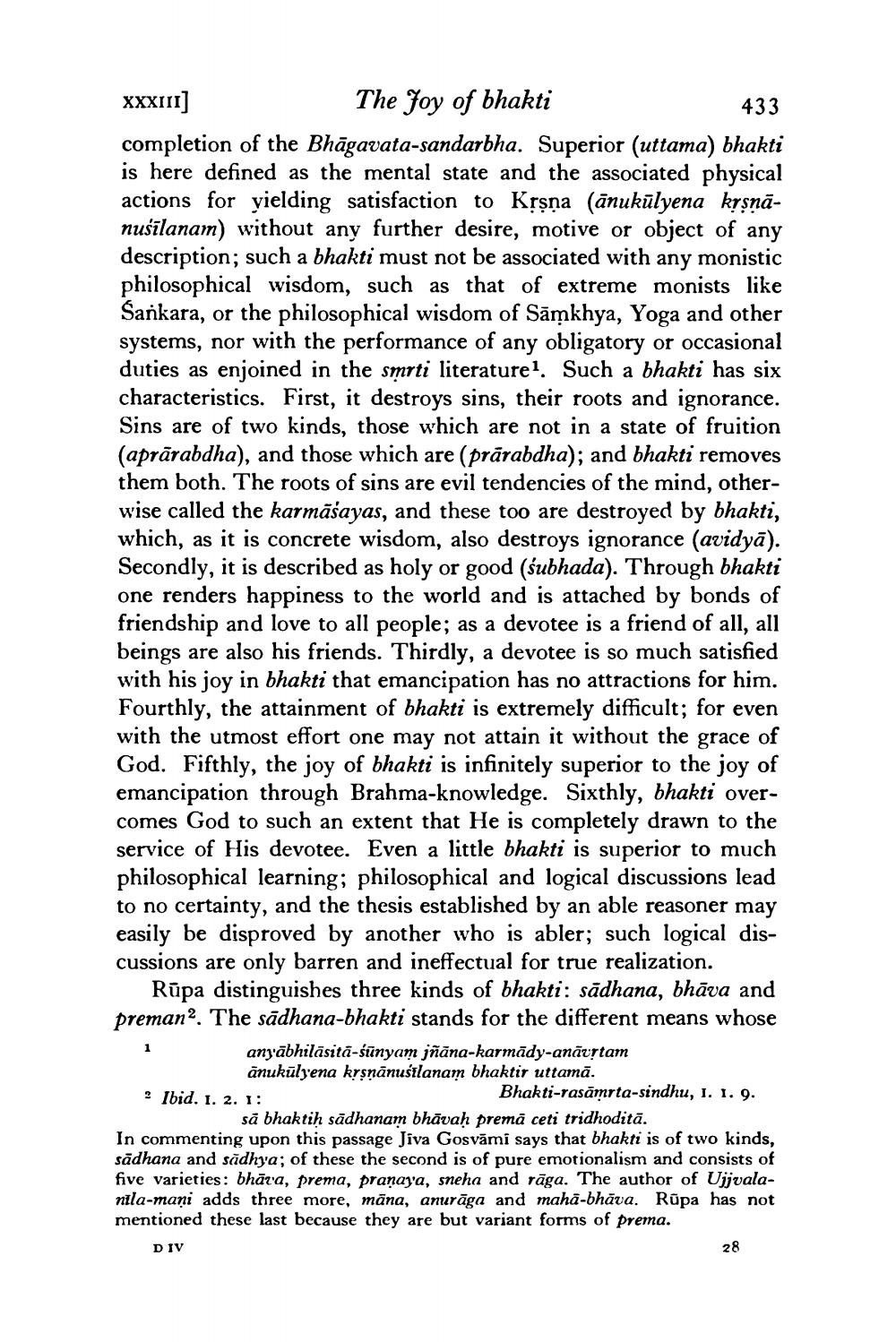________________
XXXIII] The Joy of bhakti
433 completion of the Bhāgavata-sandarbha. Superior (uttama) bhakti is here defined as the mental state and the associated physical actions for yielding satisfaction to Krsna (ānukūlyena krsnānuśīlanam) without any further desire, motive or object of any description; such a bhakti must not be associated with any monistic philosophical wisdom, such as that of extreme monists like Sankara, or the philosophical wisdom of Sāmkhya, Yoga and other systems, nor with the performance of any obligatory or occasional duties as enjoined in the smrti literaturel. Such a bhakti has six characteristics. First, it destroys sins, their roots and ignorance. Sins are of two kinds, those which are not in a state of fruition (aprārabdha), and those which are (prārabdha); and bhakti removes them both. The roots of sins are evil tendencies of the mind, otherwise called the karmāśayas, and these too are destroyed by bhakti, which, as it is concrete wisdom, also destroys ignorance (avidyā). Secondly, it is described as holy or good (śubhada). Through bhakti one renders happiness to the world and is attached by bonds of friendship and love to all people; as a devotee is a friend of all, all beings are also his friends. Thirdly, a devotee is so much satisfied with his joy in bhakti that emancipation has no attractions for him. Fourthly, the attainment of bhakti is extremely difficult; for even with the utmost effort one may not attain it without the grace of God. Fifthly, the joy of bhakti is infinitely superior to the joy of emancipation through Brahma-knowledge. Sixthly, bhakti overcomes God to such an extent that He is completely drawn to the service of His devotee. Even a little bhakti is superior to much philosophical learning; philosophical and logical discussions lead to no certainty, and the thesis established by an able reasoner may easily be disproved by another who is abler; such logical discussions are only barren and ineffectual for true realization.
Rūpa distinguishes three kinds of bhakti: sādhana, bhāva and preman2. The sādhana-bhakti stands for the different means whose
anyābhilāsitá-sünyam jñāna-karmādy-anāustam
ānukūlyena krsnānusilanam bhaktir uttamā. ? Ibid. 1. 2. 1:
Bhakti-rasāmrta-sindhu, 1. 1. 9. să bhaktih sādhanam bhāvah premā ceti tridhoditā. In commenting upon this passage Jiva Gosvāmi says that bhakti is of two kinds, sādhana and sādhya; of these the second is of pure emotionalism and consists of five varieties: bhāra, prema, pranaya, sneha and rāga. The author of Ujjvalanila-maņi adds three more, māna, anurāga and mahā-bhāva. Rūpa has not mentioned these last because they are but variant forms of prema.
DIV
28




